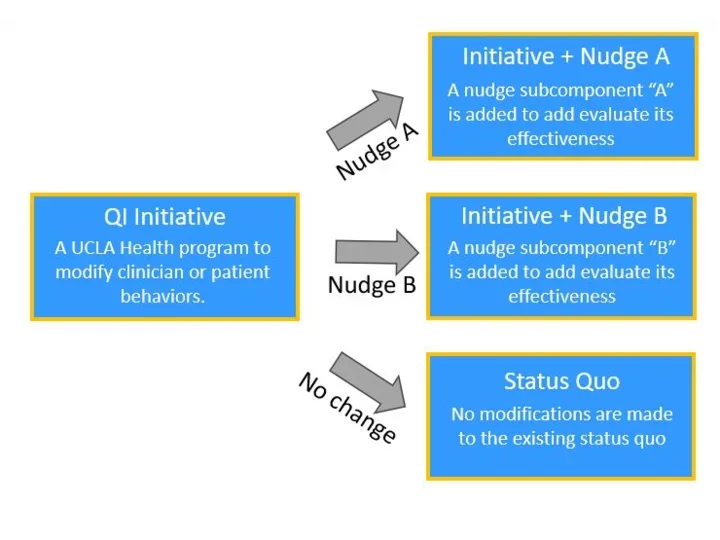What is a Nudge?
Popularized by Richard Thaler and Cass Sunstein (2009), nudges—light-touch interventions or changes in the environment that promote desired behavior changes without limiting freedom of choice or significantly altering economic incentives—have gained increasing momentum across sectors. Nudges typically work by leveraging insights from behavioral science to encourage people to make decisions that are in their own or society’s best interest.

In recent years, nudges (or more broadly, interventions rooted in behavioral science) have been increasingly adopted in healthcare to promote patient engagement, improve provider decision-making, and enhance health outcomes. Operating at various levels of the care delivery cascade, nudge strategies can target patients through appointment reminders, medication adherent prompts, or tailored messages encouraging health screenings. Providers can be influenced by automated EHR reminders or feedback on prescribing behaviors. At the healthcare system level, interventions may include redesigning EHR interfaces to streamline workflows, implementing default order sets for evidence-based care, or personalizing performance feedback to encourage best practices.